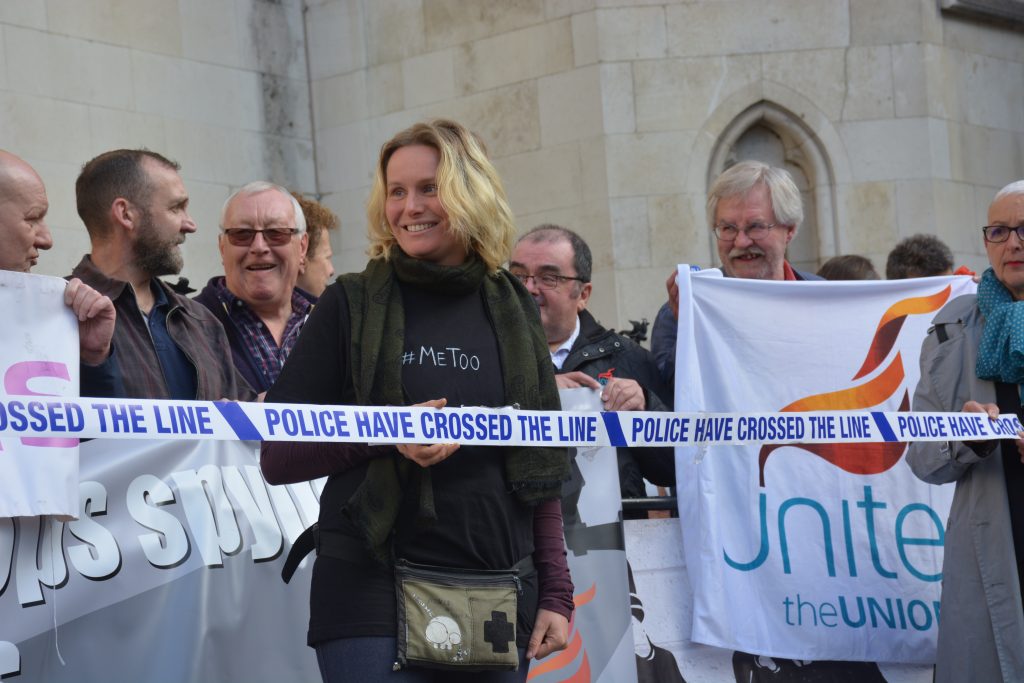
Kate Wilson has received startling admissions from the Metropolitan Police Service and the National Police Chiefs Council – at a hearing before the Investigatory Powers Tribunal at the Royal Courts of Justice being held this week.
These far-reaching admissions highlight the inadequacy of even the current legislation to provide protection to members of the public from dangerous abuses by agents and informers who are the Covert Human Intelligence Sources referred to in the current parliamentary CHIS Bill. This bill is shockingly set to significantly reduce existing levels of protection.
The police have admitted that they breached Kate’s Article 8 ECHR rights – to a private and family life – after conceding that her surveillance by at least six undercover officers over a sustained period, was neither proportionate nor justified. Previously they had only admitted that Article 8 was breached by the undercover officer Mark Kennedy when he deceived her into a long term intimate and sexual relationship. Now they admit the intrusion was even greater.
Yet the police continue to claim that authorisations for surveillance of Kate and the environmental and social justice movements she was active in were lawful and legitimate; arguments particularly relevant right now with the worryingly hasty passage of the CHIS (Criminal Conduct) Bill through parliament. Kate fiercely contests this claim, and will ask that the court now examine the evidence and circumstances of the human rights breaches, as well as the lawfulness of the operations as a whole.
Kate says “These admissions have wide reaching significance for the public at large. Over 30 women now know that they were deceived into intimate, sexual relationships with undercover officers. Many more people were subjected to similar infiltration by undercover officers. What happened to me was by no means unique, and hundreds of people will have had their rights violated in this way. These admissions mean it is simply not sustainable to say these operations were legitimate, proportionate, or lawful”
Of course, if the CHIS bill passes, new cases like Kate’s may no longer be able to be heard as the UK government are resistant to setting legal limits on any conduct that undercover operatives may consider to be justified. Other governments, such as Canada and the USA have written into security law that offences such as murder, torture and sexual violence are not acceptable conduct for any reason.
Kate’s case should broadcast loudly to the public, and our legislators, that setting no limits on intrusions into the lives of citizens by security services and other undercover agents is profoundly dangerous for democracy.
Kate has fought this case for 9 years. She has faced repeated attempts to shut down and delay her case, and fears this may be the start of another attempt to close the case down and avoid further scrutiny. The delays so far have been so severe that funding for legal counsel is exhausted and Kate is now a litigant in person – a huge undertaking against the vast resources of the police.
Many aspects of Kate’s case still need answers, such as whether her relationship with Kennedy was conducted with the knowledge and agreement of senior police officers, whether she suffered discrimination at the hands of the police because she was a woman, and whether Mark Kennedy and these other officers interfered with her right to freedom of expression, and freedom of association because of her political beliefs.

